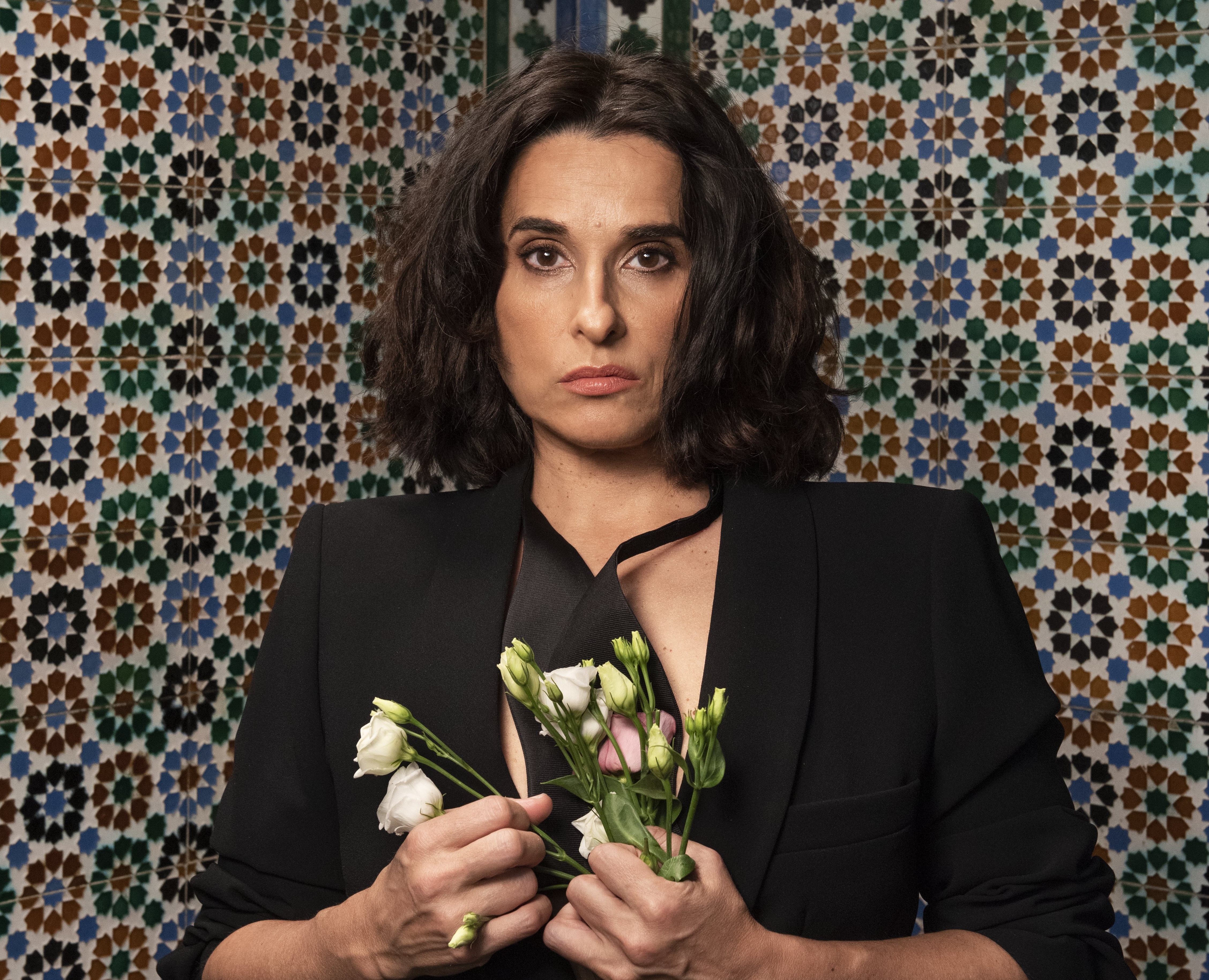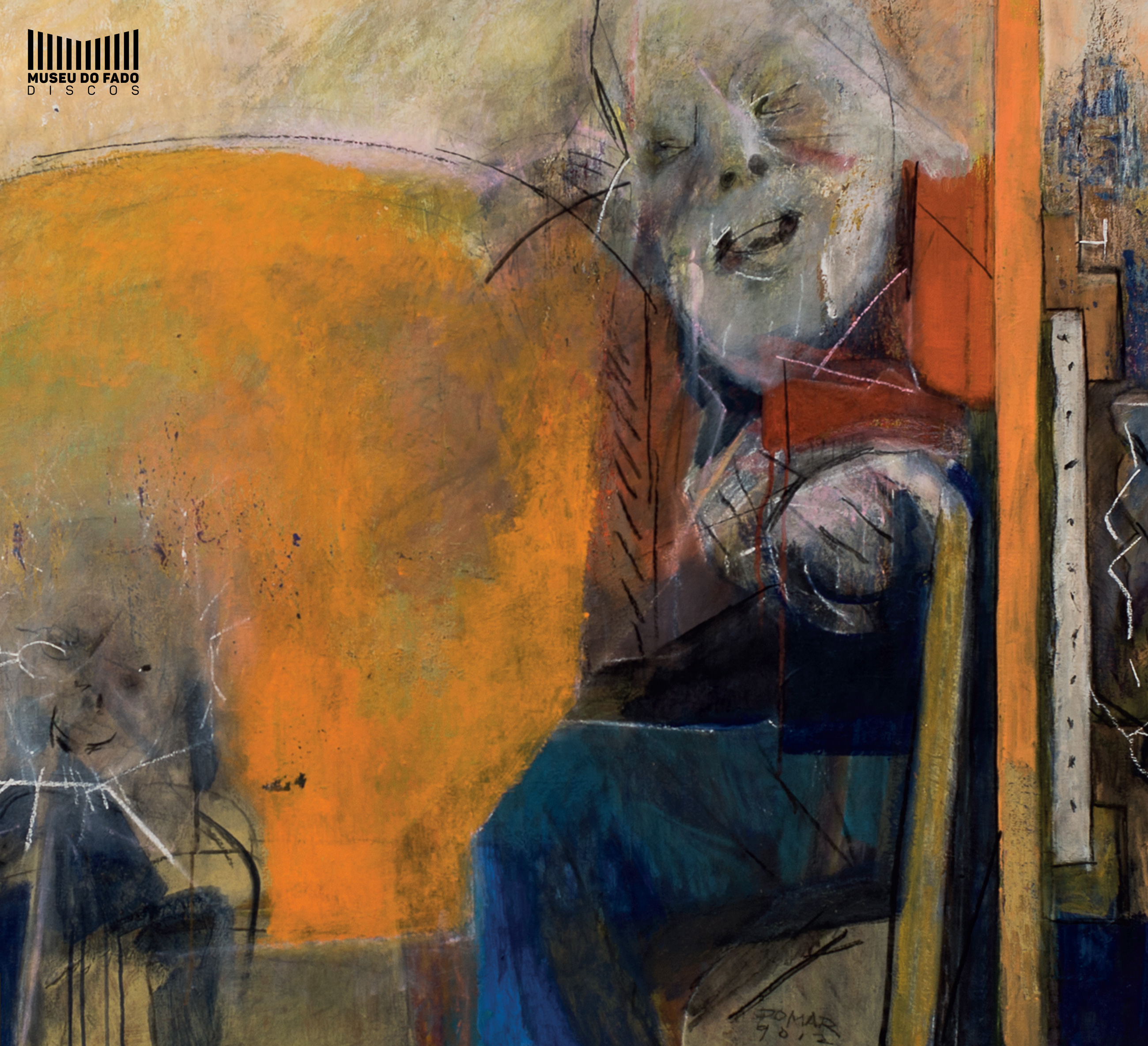Know more:
Cristina Branco
(N. 25 May, 1972)Cristina Branco was born and raised in Almeirim, a Ribatejo city. Away from Lisbon and the fado houses that populate it, Cristina Branco starts by listening to singers like Ella Fitzgerald, Sarah Vaughan, Elis Regina and only later, when she turns 18, does she know the voice of Amália Rodrigues. This “encounter” happens after his grandfather offered her the album “Rara e Inédita” for her birthday, awakening feelings in Cristina Branco never before experienced: “I fell in love with it (disc), and then consumed immediately everything related to Amália." (cf. “Diário de Notícias”, May 19, 2001).
She enrolled in the Psychology course, later opting for Social Communication. Never adapting to Lisbon, Cristina Branco returns to her hometown, with her family and friends. One night she dares to sing fado and what happened in a relaxed way and without great ambitions became a decisive moment for her life. After this first foray into fado, Cristina Branco is invited by one of the musicians for a new presentation and “it all started naturally, without fuss or festivals”, she reveals. This was followed by a brief stint on television and at the invitation of José Melo, Cristina Branco is invited to perform in the Netherlands, in 1997, as part of the 25th of April celebrations. This first live concert is recorded and results in the debut album “Cristina Branco in Holland” (1997) which quickly runs out in its various editions.
With the promotion of her first album and several concerts scheduled, the edition of a new album with the Dutch publisher Music & Words is projected. “Murmúrios” (1998) is the title chosen for an album composed of 14 themes ranging from fado to songs by Sérgio Godinho and José Afonso. “Murmúrios” reinforced the success that Holland and France had already declared to Cristina Branco and her musicians. The concerts, the inherent dissemination follow, and in France the magazine “Le Monde de la Musique” assigns her the “Prix Choc”, in the category of World Music. In March 2000 Cristina Branco will again win the “Prix Choc” with the new album “Post-Scriptum”. The success extends to Portugal (with a show in May 2000 at the Centro Cultural de Belém) and the rest of Europe.
“Corpo Iluminado” (2001) deserves the attention of the press and the Portuguese public, who finally seem to have “discovered” the voice of Cristina Branco. If success continues throughout Europe, with sold-out concerts in many different venues - it should be noted that in France, Cristina Branco was highly acclaimed by the public and by critics not resisting the inevitable comparison with Amália Rodrigues - in Portugal one wrote about Cristina Branco, “Without any fascination for the rigor of purists and with many interests outside fado, Cristina Branco continues, in this fifth album (…) to widen the frontiers of fado. (…) She has a voice of impressive quality and versatility that allows her to address, in a single album, classic themes such as “Meu Amor, Meu Amor (Limão de Amargura) or “Disse-te Adeus e Morri”(cf. May 19, 2001). In addition to the show at Castelo de S. Jorge, as part of the Fado Festival, Cristina Branco will return to the CCB stage.
After a world tour in 2001 taking the interpreter to the United States, Mexico, Brazil, Japan and South Korea, José Melo will again promote another work by the singer. The then president of the Portuguese Culture Circle in the Netherlands, deeply knowledgeable of Jan Jacob Slauerhoff's poetry, saw in the voice of Cristina Branco and in the compositions of Custódio Castelo the perfect pair for the elaboration of “a remarkable multicultural work”, as he wrote in the Note Introduction to the CD “O Descobridor - Cristina Branco Canta Slauerhoff” (2002), an album that reaches double platinum.
In September 2002, with Katia Guerreiro, Mafalda Arnauth, Teresa Tapadas, Marta Dias and Ana Sofia Varela, Cristina Branco completes the range of names highlighted in the cycle “Novas Divas do Fado”, presented in Famalicão, in an initiative that was dedicated entirely to the universe of Fado.
In "Sensus" (2003) Cristina Branco sings poets such as Vinicius de Moraes, William Shakespeare, Vasco Graça Moura, Maria Teresa Horta, among others, masterfully musicized by Custódio Castelo. This alliance between voice, music and poetry, at the same time a renewal, (see the cases of Amália Rodrigues, Maria da Fé and Mísia as an example) confirms Cristina Branco as one of the most innovative interpreters of the Portuguese music scene. In “Ulisses” (2005) Cristina Branco sings in Spanish, French and English and brings us, among other signatures, the names of José Afonso, Joni Mitchell, Vitorino, Júlio Pomar, Fausto. In this album, which featured Ricardo J. Dias' piano, Cristina Branco wrote: “Ulysses was a challenge, full of arrivals and departures, life stories, distant journeys, sometimes inside us, journeys in love (lost islands …), Paths resumed. ” (cf. “Ulysses”, 2005).
Cristina Branco continued to sell out stages all over the world, with special emphasis on the Netherlands, from where the invitation for a show at the International Aichi Fair in Japan started.
In 2006, as a tribute to Amália Rodrigues, the CD and DVD “Live” appeared. This work, recorded live in the Netherlands, includes themes such as “Trago Fado nos Sentidos”, “Fria Claridade” and “Estranha Forma de Vida”, examples of Amália Rodrigues' musical heritage. After receiving the Amália Rodrigues International Prize, Cristina Branco revisits José Afonso and launches the “Abril” market (2007).
Closing this cycle of projects, Cristina Branco resumes the interpretation of unpublished themes with the edition of her album “Kronos” (2009). For this edition, Cristina Branco had the collaboration of José Manuel Neto and Bernardo Couto on the Portuguese guitar, Alexandre Silva on the Fado guitar, Fernando Maia on the bass guitar and Ricardo Dias on the piano. Bernardo Moreira, Mário Delgado and João Paulo Esteves complete the selection of musicians who accompany Cristina Branco. Manuel Alegre, Hélia Correia, Janita Salomé, Sérgio Godinho, Miguel Farias, Carlos Bica, Álvaro de Campos, Mário Laginha, Amélia Muge, José Mário Branco, Vasco Graça Moura, Carlos Tê, Vitorino João Paulo Esteves da Silva, Júlio Pomar and Victorino d'Almeida wrote the poems.
In 2010, she received a nomination for the "Autores" award from SPA, competing for the best song with "Margarida", from her album "Kronos".
A year later, she edits "Não há tangos em Paris", followed by "Alegria" (2013), "Menina" (2016), "Branco" (2018) and "Eva", in 2020.
Source:
http://www.cristinabranco.com/
Diário de Notícias, July 1, 2000
Diário de Notícias, May 19, 2001
Diário de Notícias, May 22, 2001
Expresso, June 16, 2001
“Digital do Norte” newspaper, September 6, 2002
“The New York Times”, 9 January, 2001
Expresso, June 29, 2002
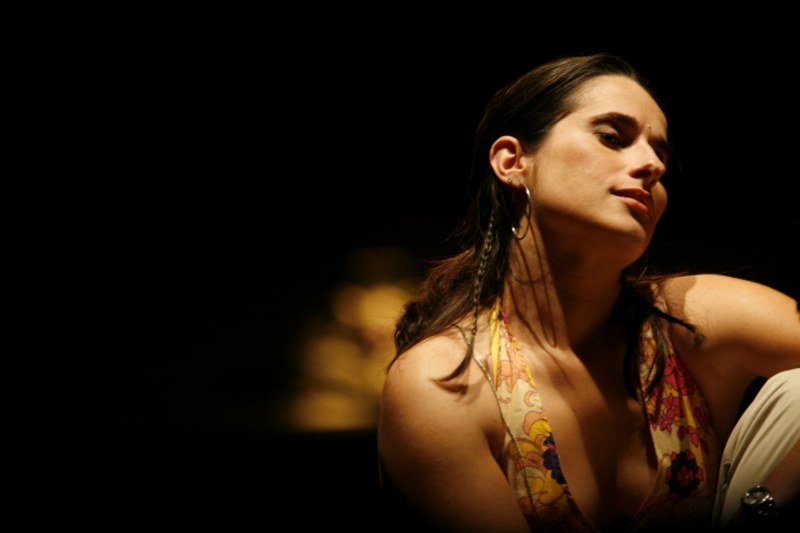
Cristina Branco s/d
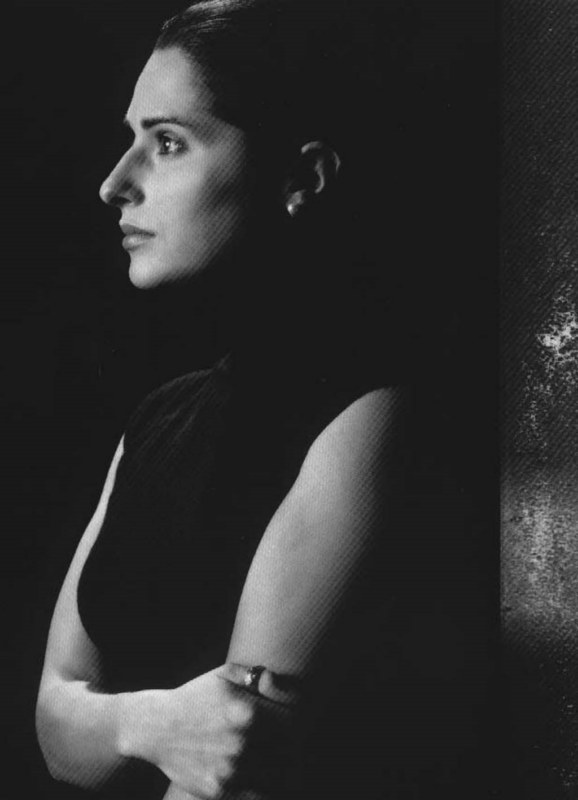
Cristina Branco s/d
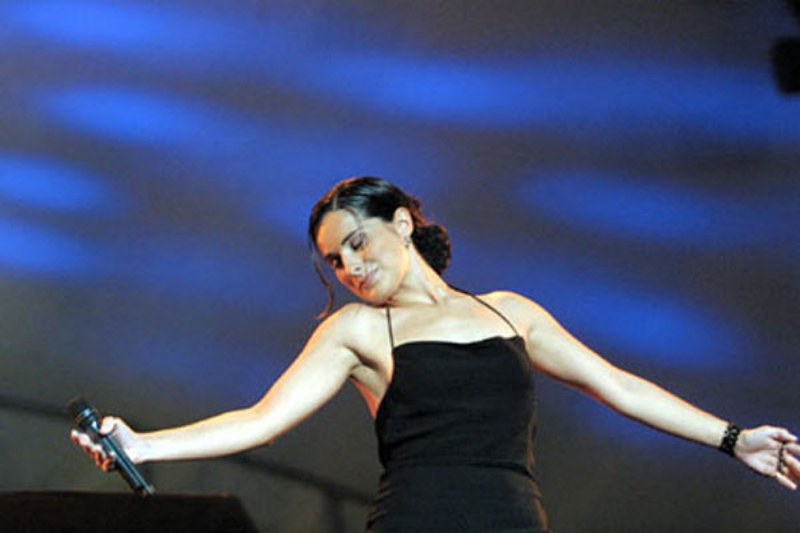
Cristina Branco s/d
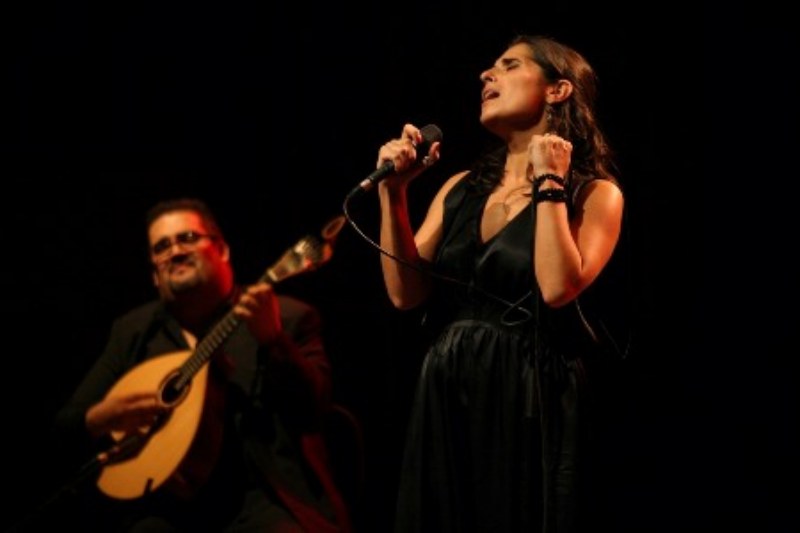
José Manuel Neto, Cristina Branco s/d

Cristina Branco s/d
-
Corpo Iluminado Cristina Branco (David Mourão-Ferreira / Custódio Castelo)
